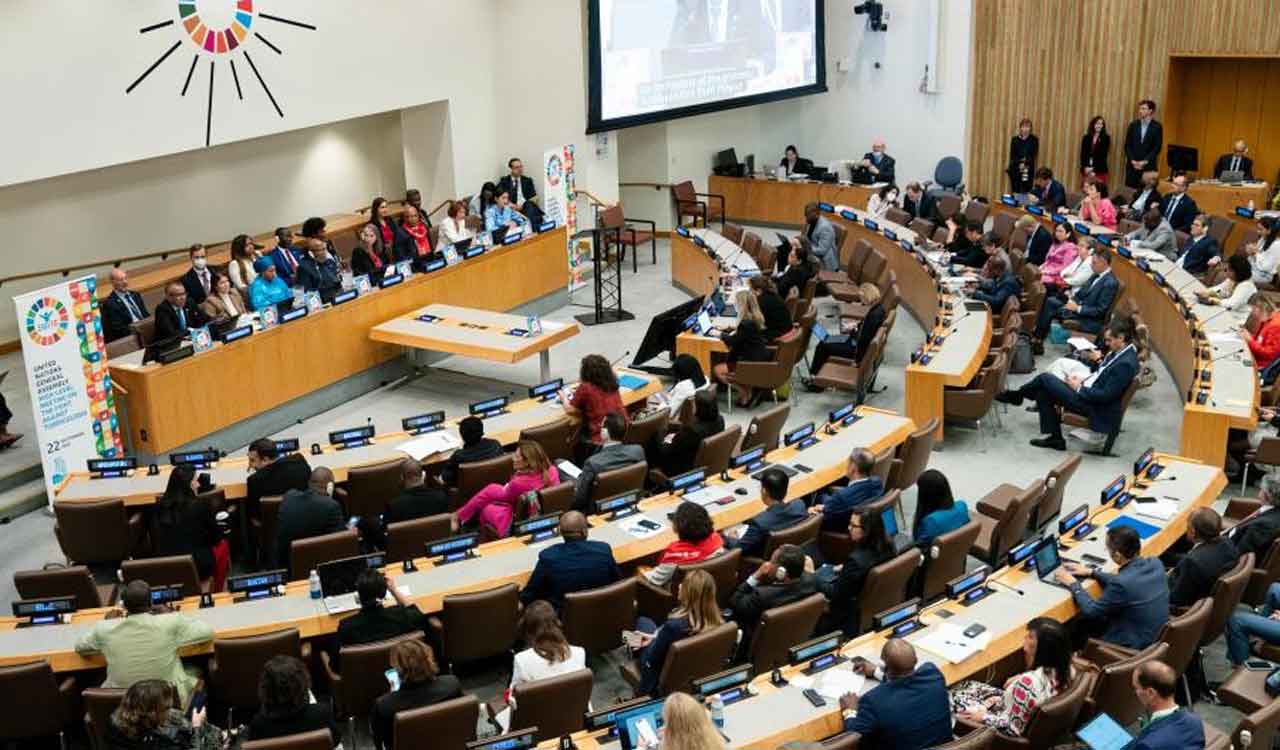The document sets forth ambitious goals for the next five years, aiming to achieve a 90 percent coverage of TB prevention and care services, offering social benefit packages to affected individuals, and authorizing the development of at least one new vaccine.
Updated On – 10:19 AM, Sat – 23 September 23

United Nations: World leaders at the United Nations General Assembly’s high-level meeting on the fight against tuberculosis (TB) have approved a political declaration to advance efforts to end the disease by 2030.
The document lays out ambitious new targets for the next five years, which include reaching 90 per cent of people with TB prevention and care services, providing social benefit packages to those who have the disease, and licensing at least one new vaccine, Xinhua news agency reported.
“I congratulate all member states on the approval of this draft political declaration, which I will submit to the General Assembly for its formal adoption at a later date,” UN General Assembly President Dennis Francis said on Friday.
“We come together today with a purpose or resolve and try to reinvigorate commitments and accelerate progress towards ending tuberculosis, a millennia-old disease, but it’s one of the world’s top infectious killers,” said Francis.
“Why, after all the progress we have made – from sending man to the moon to bringing the world to our fingertips – have we been unable to defeat a preventable and curable disease that kills over 4,400 people a day?” he said.
“TB epidemic thrives due to well-known inequities such as poverty and undernutrition, and it is further exacerbated by conflicts, climate change, and other crises,” said Francis.
The Covid-19 pandemic reversed years of progress in the fight to end TB, placing on heavier burden on those affected, especially the most vulnerable, he said.
UN Deputy Secretary-General Amina Mohammed called for action to tackle the main drivers of infection – poverty, undernutrition, lack of access to healthcare, the prevalence of HIV infections, diabetes, mental health, and smoking.
Stigma surrounding the disease needs to be reduced so that people can get help without fear of discrimination, she said, and governments must ensure universal health coverage that includes TB screening, prevention and treatment.
Mohammed also shared her own reason for supporting the global fight. “My commitment is my personal story: losing my father to TB at 50, 37 years ago this week,” she said.
“Ending tuberculosis is possible. It requires political will, financial commitment, and global solidarity. The UN system stands ready to support all efforts… Together we must pledge to spare no effort to end tuberculosis once and for all,” said Mohammed.
TB is the second leading infectious killer worldwide after Covid-19, with some 1.6 million deaths in 2021 alone, according to the World Health Organization.





